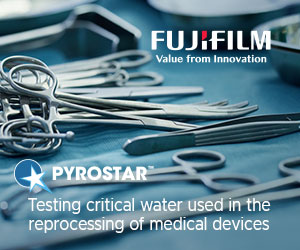Capturing E. coli for Faster Detection
| |
| With the rapid isolation and identification of verocytotoxigenic strains of Escherichia coli a high priority, Lab M's Captivate™ immunomagnetic separation (IMS) technique allows part of the conventional enrichment to be omitted, helping labs achieve faster results. For more information visit www.labm.comCaptivate™ uses antibody-coated microscopic paramagnetic particles for the specific immunomagnetic separation of micro-organisms. The beads have a magnetite core and a ceramic zirconium oxide coating and are designed for the immunomagnetic separation of target bacteria from enrichment cultures. When incubated with a sample, the antibody-coated beads bind to cell surface antigens forming an antibody-antigen complex between the beads and the target molecules. Target cells are 'captured' and are then separated from background organisms and interfering materials using a magnetic concentrator. Non-specifically bound material is removed by washing and beads are then plated to selective media or subjected to other analyses. Analagous to selective enrichment, IMS offers greater speed and can be a less damaging alternative to the use of antibiotics and other harsh reagents. It is highly effective in enhancing the isolation rates of target organisms, even from potentially problematic samples. IMS is often also used in conjunction with other technologies, such as PCR, and can also provide the 'capture' front end for automated rapid-detection systems. |
NOTE: This item is from our 'historic' database and may contain information which is not up to date.
Source : Lab M View Company Information
Posted on June 20, 2011






